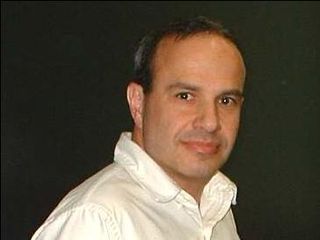A Quote by Isaac Asimov
Theories are not so much wrong as incomplete
Quote Topics
Related Quotes
Newton's theory is not 'not right', it just does not cover all distances. Contrary to popular belief, theories in science are not proven wrong, they are just replaced by more complete and convenient theories. To sound provocative, even the geocentric theory was never "proven" wrong, it is just not as convenient as the heliocentric theory, since it requires endless epicycles.
It is rational to choose the right means to your ends to develop very elegant abstract formal theories of rational choice, and then turn these into what look like moral theories. Philosophers tend to be ravished by the formal beauty of such theories, and they don't pay much attention to the fact that our human limitations make them pretty useless in practice, while the simple point about instrumental reasoning is too shallow to be of much real moral interest.
I was born with the wrong sign
In the wrong house
With the wrong ascendancy
I took the wrong road
That led to
The wrong tendencies
I was in the wrong place
At the wrong time
For the wrong reason
And the wrong rhyme
On the wrong day
Of the wrong week
Used the wrong method
With the wrong technique
Wrong
Wrong.
One of the greatest sources of problems in our society arises from people having loads of wrong theories in their heads - often theories that are critical of others - that they won't test by speaking to the relevant people about them. Instead, they talk behind people's backs, which leads to pervasive misinformation.
Managers are already voracious consumers of theory. Every time they make a decision or take action, it's based on some theory that leads them to believe that action will lead to the right result. The problem is, most managers aren't aware of the theories they're using, and they often use the wrong theories for the situation.
Our minds are specifically adapted to developing certain theories, and we have a science if the theories that are available to our minds happen to be close to true. Well, there is no particular reason to suppose that the intersection of true theories and theories that are accessible to the mind is very large. It may not be very large.
In evolution, as in all areas of science, our knowledge is incomplete. But the entire success of the scientific enterprise has depended on an insistence that these gaps be filled by natural explanations, logically derived from confirmable evidence. Because "intelligent design" theories are based on supernatural explanations, they can have nothing to do with science.
There are varieties of theories of revolution. According to one of these theories, only one of these theories, revolutions occur when there is an explosion of rising expectation. And amongst the lower strata in Iranian society, we are witnessing an increasing rise of the expectation and it's clear that the regime is incapable of satisfying these demands.
Each and every incomplete thing in your life or work exerts a draining force on you, sucking the energy of accomplishment and success out of you as surely as a vampire stealing your blood. Every incomplete promise, commitment and agreement saps your strength, because it blocks your momentum, inhibits your ability to move forward, to progress and improve. Incomplete things keep calling you back to the past to take care of them.





































